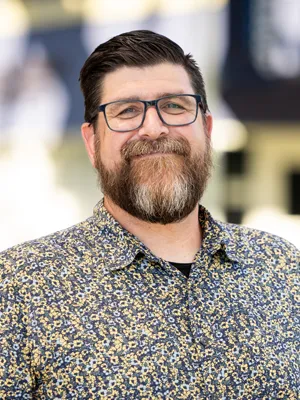
What’s Stopping You? FIVE Honest Reasons People Avoid Ministry or Theological Training — And Why That Might Be a Mistake

As a newbie in the world of enrollment in Christian higher education, I am confronted with a myriad of new questions, and I would love to invite you into my musings! As a pastor, I have always aspired to see both youth and adults grow deeper in biblical knowledge, spiritual formation, and equipping for ministry. As a student, my personal journey in theological and biblical exploration was incredibly rich, practical, and transformative, and I believe everyone should have the opportunity to experience this — or at least get a taste of it! Now I have the privilege of partnering with Multnomah Biblical Seminary and Jessup University to frame this experience for others.
Graduate studies and seminary are often associated with individuals in part-time or full-time vocational ministry (pastors, non-profits, missionaries, and chaplains). However, in my 25 years of church and educational ministry, I have encountered and listened to many Christians who are discovering a renewed thirst and passion. They desire deeper biblical and theological reflection for guidance by the Holy Spirit, and innovative equipping for service of the church and the community.
Nevertheless, in a busy and oversaturated world, there are numerous hurdles that can restrain one from pursuing further education. This might be why the title hooked you at some level.
I collaborated with a few knowledgeable strangers (you call them A.I.) to hear their curated reasons and insights on why people hesitate to explore deeper theological education. Their responses largely matched what I hear, and I would love to share how one can wade through these reasons while still considering God’s call to deeper study. I invite you to learn more by attending the Webinar linked at the bottom!
Some key reasons people avoid going deeper in theological education include:
- Time: It may not be the right time (Gemini); it often requires significant time (Grok). People are busy and often wonder how they can fit such intensive work into their busy schedules.
- Finances: Education is expensive, and a person may not have the financial resources (Gemini), it is a financial investment (Grok); Many view education as a means to advance in their careers…(but it’s so much more!)
- Calling: They are not in a formal ministry role (Gemini); “I’m not going to be a pastor or missionary — so why train like one?” or ‘I’m called to other spaces, not the church’ (Chat GPT). My secular role or social life doesn’t need that sort of equipping… (Grok)
- Content: I believe I am good where I am at – A fulfilling life doesn’t require a ministry-focused path (Gemini), I have sufficient existing knowledge for my context, thus it is unnecessary (Grok), or “I’m still figuring things out… I’m not spiritually ‘mature enough’ to go deeper.” (ChatGPT)
- Over-Intellectualization: Deep theological study can sometimes lead to overanalyzing spiritual matters, potentially distancing someone from the simplicity of personal faith or causing them to prioritize academic knowledge over practical application (Grok). There is also a concern that ‘I will become prideful or be seen as a know-it-all’ (Chat GPT).
While these reasons carry some validity, it is too easy to let them be a looping backing track to our lives. We often wait until there is enough time, money, maturity, or calling. Yet, each of these ‘reasons not to’ is actually an invitation. They point to why deeper biblical equipping is not just for the few but for every believer who wants to be faithful, fruitful, and formed into the image of Christ.
Theological education is more accessible, affordable, and applicable now than in previous times. Whether you choose to take a class at church, explore a new resource, or access biblical education at MBS (which I invite you to consider), may God encourage you with these insights:
- You may not be called to full-time ministry, but you are called to full-time faithfulness. Training helps you live that out more effectively.
- The goal isn’t to know more — it’s to become more like Christ.
- You don’t have to have it all together to begin. Training isn’t a reward for the mature — it’s a pathway to maturity.
- Concerning finances, it is easy to see any arena of learning as a transactional expense, but it’s an investment and a foundation for a life of service, formation, and faith.
- Time and busyness are too familiar and tangibly felt by many. It’s about what we do with our time and how we rate what is most important. I think John Frame best frames this in his reflection for theologians: “The great challenge of a student’s life is to not let the urgent supplant the important.”
Each of us is a lifelong learner, and we would love to pray for you as you discern the ways and places where God may be calling you deeper.
